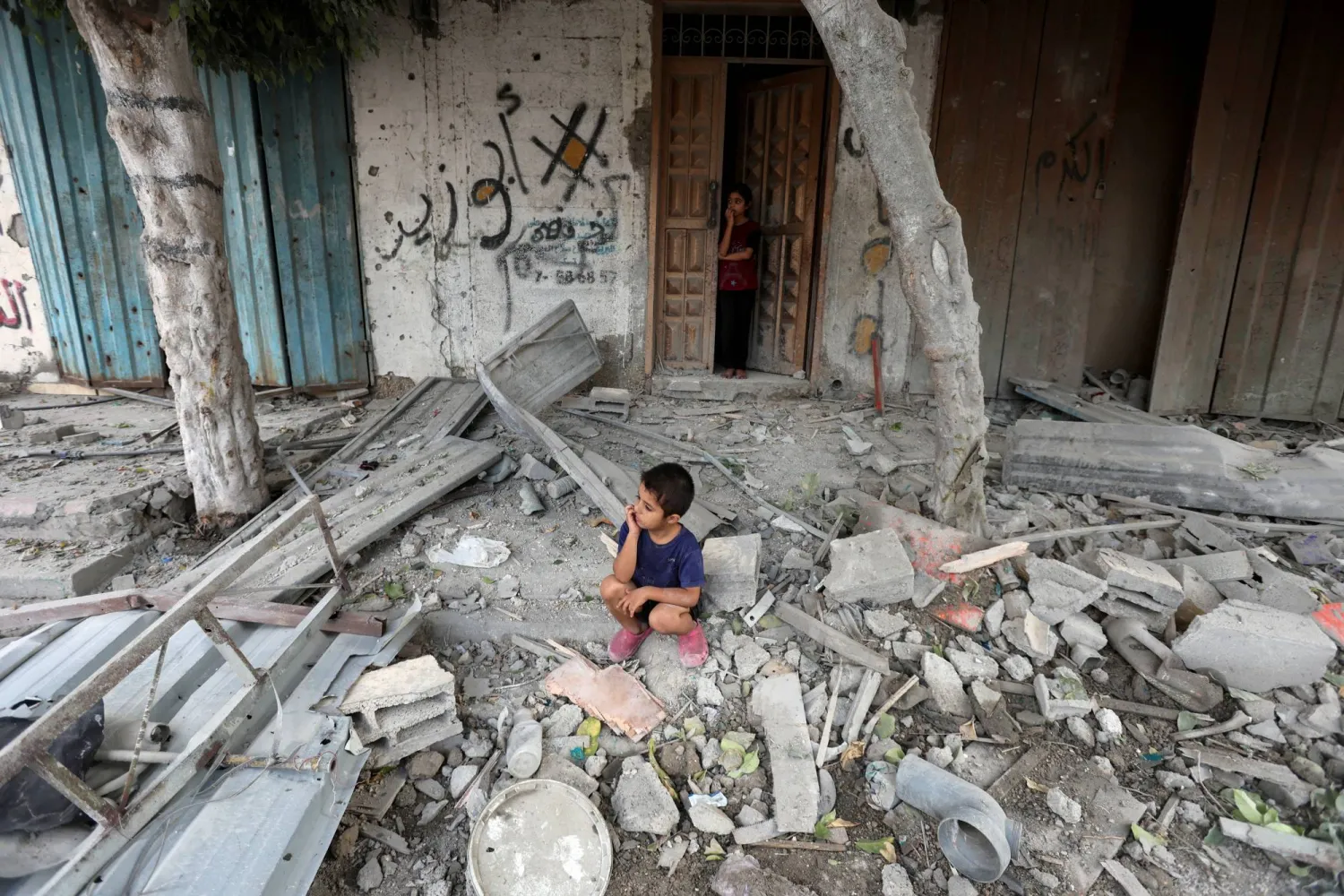International mediators were set to hold a new round of talks Thursday aimed at halting the Israel-Hamas war and securing the release of scores of hostages, with a potential deal seen as the best hope of heading off an even larger regional conflict.
The United States, Qatar and Egypt were to meet with an Israeli delegation in Qatar as the Palestinian death toll from the 10-month-old war nears 40,000. Hamas has not said whether it will participate, accusing Israel of adding new demands to an evolving proposal that had US and international support, The Associated Press said.
A cease-fire in Gaza would likely calm tensions across the region and may persuade Iran and Lebanon's Hezbollah to refrain from retaliatory strikes on Israel after the killing of a top Hezbollah commander in an Israeli airstrike and of Hamas' top political leader in an explosion in Iran's capital.
The mediators have spent months trying to hammer out a three-phase plan in which Hamas would release scores of hostages captured in the Oct. 7 attack that triggered the war in exchange for a lasting cease-fire, the withdrawal of Israeli forces from Gaza and the release of Palestinians imprisoned by Israel.
Both sides have agreed in principle to the plan, which President Joe Biden announced on May 31. But Hamas has proposed “amendments” and Israel has suggested “clarifications,” leading each side to accuse the other of making new demands it cannot accept.
Hamas has rejected Israel's latest demands, which include a lasting military presence along the border with Egypt and a line bisecting Gaza where it would search Palestinians returning to their homes to root out militants. Hamas spokesman Osama Hamdan told The Associated Press the group is only interested in discussing the implementation of Biden's vision and not in further negotiations over its content.
Prime Minister Benjamin Netanyahu denies Israel has made new demands, but he has also repeatedly raised questions over whether the cease-fire would last, saying Israel remains committed to “total victory” against Hamas and the release of all the hostages.
The two sides are also divided over the details of the hostage-prisoner exchange, including who among the Palestinian prisoners would be eligible for release and whether they would be sent into exile. Hamas is demanding the release of high-profile militants convicted of orchestrating attacks that killed Israelis.
The war began when Hamas-led militants stormed across the heavily guarded border on Oct. 7 in an attack that shocked Israel's vaunted security and intelligence services. The fighters rampaged through farming communities and army bases, killing some 1,200 people, mostly civilians.
They abducted another 250 people. Over 100 were released during a weeklong cease-fire in November, and around 110 are believed to still be inside Gaza, though Israeli authorities believe around a third of them died on Oct. 7 or in captivity. Seven were rescued in military operations.
Israel's retaliatory offensive has killed nearly 40,000 Palestinians, according to Gaza's Health Ministry, which does not say how many were militants. The offensive has left a swath of destruction across the territory and driven the vast majority of Gaza's 2.3 million people from their homes, often multiple times.
Successive evacuation orders and military operations have driven hundreds of thousands of people into a so-called humanitarian zone along the coast where they live in crowded tent camps with few services. Aid groups have struggled to deliver food and supplies, prompting warnings of famine.
Hamas has suffered major losses, but its fighters have repeatedly managed to regroup, even in heavily destroyed areas where Israeli forces had previously operated. Its top leader and one of the architects of the Oct. 7 attack, Yahya Sinwar, is still believed to be alive and hiding inside Gaza, likely sheltering in Hamas' vast tunnel network.
Hezbollah has meanwhile traded fire with Israel along the border in what the Lebanese militant group says is a support front for its ally, Hamas. Other Iran-backed groups across the region have attacked Israeli, American and international targets, drawing retaliation.
Iran and Israel traded fire directly for the first time in April, after Iran retaliated for an apparent Israeli strike on its embassy compound in Syria that killed two Iranian generals. Many fear a repeat after the killing of Hamas leader Ismail Haniyeh, who was visiting Iran for the inauguration of its new president. The explosion was widely blamed on Israel. Israel has not said whether it was involved.
Hezbollah has meanwhile vowed to avenge the killing of its commander, Fuad Shukr, raising fears of an even more devastating sequel to the 2006 war between Israel and the militant group.
Still, Iran and Hezbollah say they do not want a full-blown war, and a cease-fire in Gaza could provide an off-ramp after days of escalating threats and a massive military build-up across the region.
Mediators to Hold New Gaza Cease-Fire Talks, Hoping to Head Off an Even Wider War

A Palestinian boy sits at the site of an Israeli strike on a house, amid the Israel-Hamas conflict, in Maghazi refugee camp in the central Gaza Strip, August 14, 2024. REUTERS/Ramadan Abed

Mediators to Hold New Gaza Cease-Fire Talks, Hoping to Head Off an Even Wider War

A Palestinian boy sits at the site of an Israeli strike on a house, amid the Israel-Hamas conflict, in Maghazi refugee camp in the central Gaza Strip, August 14, 2024. REUTERS/Ramadan Abed
لم تشترك بعد
انشئ حساباً خاصاً بك لتحصل على أخبار مخصصة لك ولتتمتع بخاصية حفظ المقالات وتتلقى نشراتنا البريدية المتنوعة







